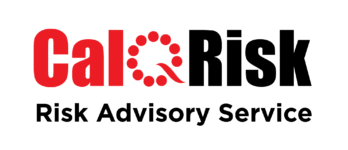Today, January 17th, 2025, marks a significant milestone in the European Union’s regulatory landscape with the official launch of the Digital Operational Resilience Act (DORA). This landmark regulation is set to reshape how financial entities across the EU manage digital risks, ensuring they are better equipped to withstand, respond to, and recover from cyber threats and ICT-related disruptions.
What is DORA?
The Digital Operational Resilience Act is a legislative framework aimed at harmonizing and strengthening the digital resilience of financial institutions within the EU. It establishes uniform requirements for the security of network and information systems and enhances oversight of third-party ICT service providers.
In a world increasingly reliant on digital technologies, DORA is a proactive step toward safeguarding financial stability and consumer trust. It ensures that financial entities, regardless of size or complexity, maintain robust mechanisms to identify, manage, and mitigate ICT risks.
Key Provisions of DORA
- ICT Risk Management Financial entities must implement comprehensive risk management frameworks that encompass:
- Identification and classification of ICT systems and assets.
- Continuous monitoring and evaluation of vulnerabilities.
- Incident detection and reporting mechanisms.
- Incident Reporting DORA introduces stringent requirements for reporting significant ICT-related incidents to regulators. This ensures transparency and enables swift regulatory responses to systemic threats.
- Third-Party Risk Oversight A major focus of DORA is the oversight of critical third-party ICT providers. Financial entities are required to:
- Conduct due diligence and risk assessments on their providers.
- Formalize contracts outlining security and resilience expectations.
- Monitor third-party compliance continuously.
- Testing and Operational Resilience Entities must conduct regular testing of their ICT systems to validate their resilience against cyberattacks and operational disruptions. Threat-led penetration testing (TLPT) is a core component for high-impact institutions.
- Governance and Accountability DORA mandates clear governance structures for ICT risk management. Senior management is held accountable for ensuring compliance and fostering a culture of resilience within their organisations.
Why DORA Matters
In an era where cyber threats are escalating in scale and sophistication, the financial sector—a critical component of modern economies—is increasingly vulnerable. DORA addresses these challenges head-on by:
- Enhancing Consumer Confidence: By ensuring financial entities can effectively protect sensitive data and maintain service continuity.
- Reducing Systemic Risk: By mandating robust safeguards, DORA minimizes the potential for ICT incidents to cascade across the financial ecosystem.
- Encouraging Innovation: With clearer regulatory expectations, financial entities can adopt new technologies with greater confidence.
The Role of CalQRisk in DORA Compliance
As financial institutions navigate the complexities of DORA, CalQRisk stands ready to support them every step of the way. Our integrated risk management platform provides the tools needed to:
- Identify and assess ICT risks comprehensively.
- Streamline incident reporting and compliance documentation.
- Easily maintain and update the Register of Information
- Monitor third-party relationships effectively.
- Conduct regular testing and resilience assessments.
With CalQRisk, organisations can transform compliance from a reactive obligation into a strategic advantage.
Looking Ahead
The implementation of DORA represents a pivotal moment for the financial sector. While compliance may pose initial challenges, the long-term benefits—increased resilience, enhanced trust, and a more stable financial ecosystem—far outweigh the costs.
At CalQRisk, we are excited to partner with financial institutions on this journey, helping them not only meet regulatory expectations but thrive in a digital-first world. As DORA comes into effect, let’s embrace this opportunity to build a more secure and resilient financial future.
For more information on how CalQRisk can help your organisation achieve DORA compliance, contact us today.









